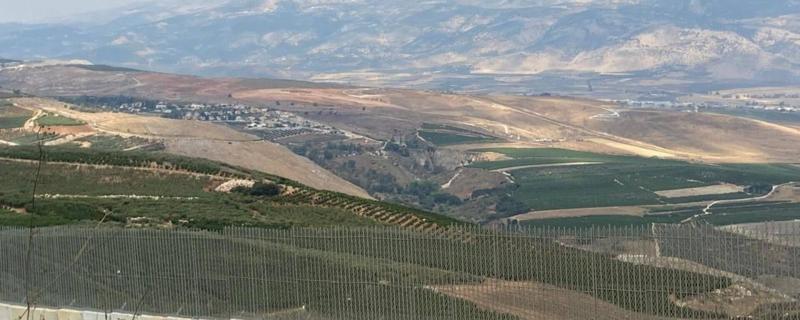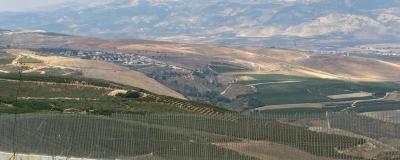In light of a shattered economy and a crumbling state, Lebanon can no longer bear the cost of another war between "Hezbollah" and Israel. While the echoes of war between Israel and Hamas resonate across the Middle East, the danger of conflict between Hezbollah and Israel is at its highest since their last major confrontation in 2006. Analysts suggest that Hezbollah may escalate tensions if it appears likely to lose in Gaza, which is located 200 kilometers from Lebanon, while Lebanese leaders fear Israel may choose to engage in a significant conflict with Hezbollah.
Destruction
However, with Israel warning that it will unleash "destruction" on Lebanon if Hezbollah opens another front, the costs of any impending war seem substantial for a country already experiencing one of the worst phases of instability since the civil war from 1975 to 1990. A source familiar with Hezbollah’s mindset noted, "Hezbollah has no interest in war. Lebanon has no interest in war." The source indicated that Hezbollah does not wish to witness the annihilation of the country or the flight of Lebanese from the south, as thousands have already fled. Many wonder who will bear the costs of reconstruction amid the state's empty coffers. Some question whether Gulf countries, which financed reconstruction efforts in 2006, will rush to assist this time given Hezbollah's increased role in Lebanon.
Calculated Clashes
Sources indicate that Hezbollah's clashes with Israeli forces along the border have been carefully calculated thus far to avoid significant escalation, although more than 40 Hezbollah fighters have died. Nonetheless, Hezbollah has signaled its readiness for war, asserting its position as the leader of the Iran-backed coalition against Israel and the United States. Lebanese politicians have urged Hezbollah not to escalate tensions, but they have no influence over Hezbollah's decisions. Druze leader Walid Jumblatt stated, "Lebanon's fate is at stake," adding, "In my political life, this may be the most dangerous stage we are living through in terms of wars." He emphasized that there is little Lebanese citizens can do to prevent a war that may erupt from Israel’s side and stated, "We must manage things through consultation and advise our brothers in Hezbollah to keep the rules of engagement as they are."
"Lebanon Will Pay the Price"
Israeli President Isaac Herzog has stated that Israel is not seeking confrontation along its northern borders, "but if Hezbollah drags us into war, it should be clear that Lebanon will pay the price." Suleiman Frangieh, head of the Marada Movement and a close ally of Hezbollah, asserted yesterday that the group does not want war. He noted that if they did, Hezbollah fighters would have struck Israel on October 7, as Hamas did from Gaza. A senior Lebanese official indicated that governments have reached out to Lebanon to calm tensions, stating, "We tell them they need to pressure the Israelis not to escalate rather than telling us to rein in Hezbollah."
Difficult Phase
The past few years have been particularly arduous for Lebanon, which has enjoyed little stability since gaining independence and enduring wars, including two Israeli invasions in 1978 and 1982. Decades of corruption and mismanagement by governing politicians led to the collapse of the financial system in 2019, wiping out savings, devaluing the currency, and exacerbating poverty. The following year, a massive explosion in the port of Beirut sent shockwaves through the nation. Hezbollah has exploited its power to hinder an investigation aiming to prosecute some of its allies, deeming the inquiry politically motivated. Tensions have resulted in deadly violence, with state apparatuses functioning under extreme difficulty, while sectarian disputes have left the presidency vacant and a fully empowered government absent.
More Destructive
Columnist Nabil Bou Munsif from An-Nahar newspaper stated that any war would be more destructive than the 2006 conflict, as there is no government capable of managing the disaster. He added, "We would then face a scenario of true horror, which is the destruction of Lebanon's infrastructure and a complete obliteration of any possibility for economic recovery." It took years for Lebanon to rebuild after the 2006 war, in which 1,200 people in Lebanon, mostly civilians, and 158 Israelis, mostly soldiers, lost their lives.
Nasrallah
Hezbollah leader Hassan Nasrallah stated after the war that began following the abduction of two Israeli soldiers and the killing of others in a cross-border raid that the group did not expect a war and would not have carried out the operation if it had known it would lead to such conflict.
"They Decide on Matters"
Seventeen years after the 2006 war, Hezbollah's significantly expanded arsenal has tipped the balance of power in its favor, alarming opponents who say the group is once again deciding on matters of war and peace. Ghassan Hasbani, a Lebanese Forces leader, remarked, "They decide on matters. This is absolutely unacceptable." He expressed grave concerns about Hezbollah dragging Lebanon into a devastating confrontation at a time when the fragility of its social and economic position means it cannot afford further instability.
According to Mehdi Haj Ali from the Carnegie Middle East Center, Hezbollah will carefully contemplate how to finance reconstruction efforts after any war, and questions will arise regarding whether Gulf countries will come to aid and how much support Iran can provide. He stated, "If there is no reconstruction, there will certainly be a political cost to the organization... People will ask questions, and there will be widespread anger."




